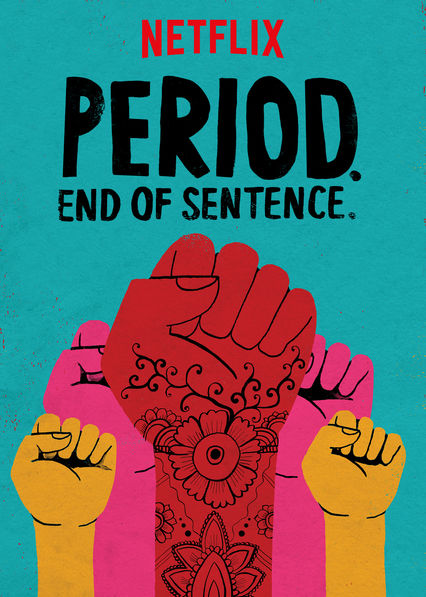
By: Neida Rodríguez Rodríguez (neida.rodriguez@upr.edu)
When girls in developed countries get their period, they might miss a day or two in school, but in India or other developing countries, girls most likely will have to drop out. This is the premise of the Academy Award winning short-documentary, «Period. End of Sentence» by Rayka Zehtabchi, Melissa Berton, and Claire Sliney. The short film narrates the story of a group of women in Kathikhera, a small village near Hapur, India, who do not have the resources to acquire sanitary products, specifically disposable pads.
Some of the women interviewed expressed they do not know why they get their period, and are ashamed and shamed by men because of it. Throughout the documentary, the viewer learns that the women in Hapur have to wear rags when they are menstruating and throw away the garments during the night, when no one is watching because they are embarrassed and ashamed of getting their period.
One of the women interviewed explains that she had to drop out of school and was unable to finish middle school, because she wasn’t able to change her garments due to the fact that men would stare at her. On top of that, she did not have access to disposable pads nor to a bathroom.
Throughout the short-documentary, we learn that an activist called Murugananthem, created a machine to produce low-cost, biodegradable sanitary pads. He decided to create this device because he saw what his wife had to go through every month and thought it was unfair for every woman in similar situations. The initiative known as The Pad Project, employs women to help with the production of these menstrual pads. This not only helps women economically, as they are also able to empower and educate others about the importance of accessible and necessary feminine hygiene products.
While I was watching the documentary, I kept thinking about how stigmatized menstruation is not only in underdeveloped countries, but in many other spheres of the world, and how many women in developed countries take the accessibility of going to a regular pharmacy and buying tampons or sanitary pads as a given.
According to The New York Times, women and girls in Nepal are shamed when they menstruate and are banished from their homes until they stop their cycle. These girls are also not permitted to touch or gaze upon some people, as this could bring about bad luck or misfortune to others. A problem similar to this one happens in «Period. End of Sentence» when a woman explains that women are not allowed to go to the temple and pray to their goddess. This sparks a debate, because she says that the goddess is «also a woman» who understands what menstruation is and this restriction is absurd.
The stigmatization of menstruation can be seen almost every day. For example, when a woman is moody, sad, or emotional it is common to hear others comment. «Oh, they must be on their period». That’s why when director Rayka Zehtabchi won the Oscar for best documentary short subject said «I’m not crying because I’m on my period or anything (…)» .
The documentary tackles the taboo that exists in India around menstruation, a natural part of the feminine cycle that begins in the life of every single girl around puberty and tends to last up until their 50’s. Not only does the documentary explore this, it also demonstrates the social disadvantages that the women in Hupar, India face. For example, one of the women interviewed explains that she wants to join the police academy and when the producer asks her why, she answers: «So I don’t have to get married». The short continues to show that even though these women are tied to old patriarchal rules bestowed upon them by old traditions, they are determined to break them and empower others. That’s why during the documentary, the creator of the pad machine says: «The strongest creature on earth is not the elephant, not the tiger, but the girl.».
Near the end of the 26 long minute documentary, one of the women, who’s collecting material to produce pads, says to another who’s helping her that they should get better treatment because «we are the creators of the universe». «Period. End of Sentence» is now streaming on Netflix.
You can follow The Pad Project on Facebook
